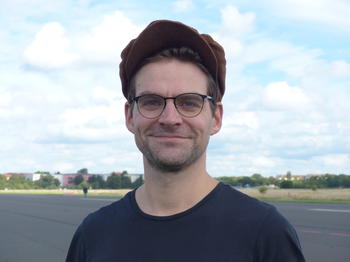Felix Wessel

(Doctoral Fellow of the Rosa-Luxemburg-Foundation )
From Guilds to Trade Unions. Labour Organization in Syria in the late Ottoman Empire and under the French Mandate
Personal Profile
Felix Wessel received his BA in History and Area Studies Asia and Africa at Humboldt-Universität zu Berlin with a thesis on the influence of trade unionism on the 2011 Revolution in Egypt. He afterwards graduated from Freie Universität Berlin with a MA in Islamic Studies on the successive legislation abolishing the guilds in Syria and establishing trade unions as legally authorized labour organizations first under Ottoman rule, under French mandate rule and finally in independent Syria.
He is affiliated with HISDEMAB (“Historicity of Democracy in the Arab and Muslim Worlds”) project at the Leibniz-Zentrum Moderner Orient (ZMO).
Research
My research aims at examining the historical process in which guilds gave way to other forms of organizations in an astonishingly frictionless, sometimes transformative, sometimes replacing way.
In the Ottoman empire, the guild system played a key role in organizing labour and the economy. The successive introduction of capitalist modes of production in the Ottoman Empire over the course of the 19th and early 20th century not only changed way labour and production was organized. These alterations also implied a change in the organizational representation of labour.
While the guild system was a central piece in organizing labour and the economy in the Ottoman empire, it was associations and trade unions that finally proved to be the appropriate model to circumstances in a capitalist market economy. It was in the later part of the 19th century that, in Syria, craft guilds lost much of their influence. Consequentially, an Ottoman law abolished the craft guilds in 1912 and replaced them with craft associations, a measure reinforced by French mandate legislation in the interwar period. Still, traditional craft organizations and similar hybrid or derivative forms of organizations survive well into the 20th century. But when the Syrian Republic eventually gained independence in 1946, trade unionism had prevailed and proved to be most suitable to represent craftsmen and workers, and, at the same time, to establish a new corporatist model of integration that could exert sufficient control over craft and labour.
First Supervisor: Prof. Dr. Ulrike Freitag
Second Supervisor: PD Dr. Nora Lafi
Publications:
Tipping the Scales towards an Islamic Spiritual Medicine: Ibn Qayyim al-Jawziyya on Jinn and Epilepsy; in: Böttcher, Krawietz (Ed.): Jinn, Cultural Flows and Health-Management of Muslims. Palgrave Macmillan, 2020.